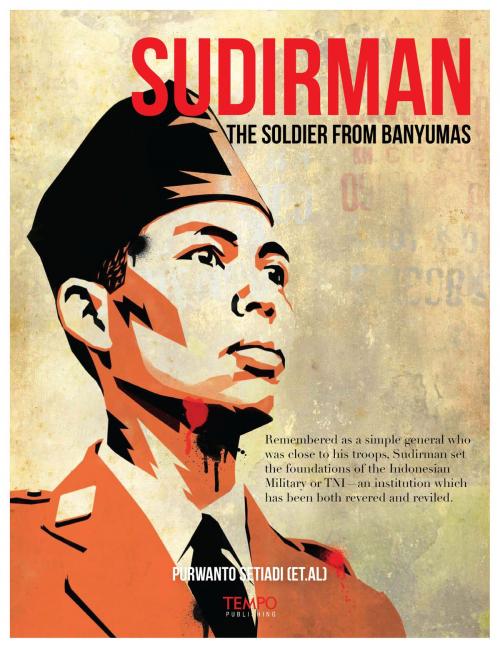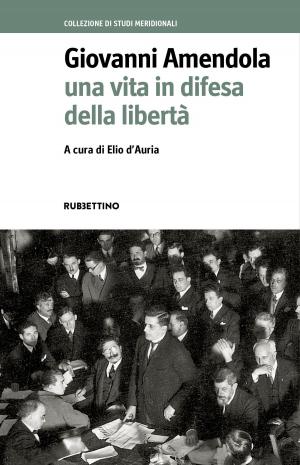| Author: | Purwanto Setiadi et al. | ISBN: | 9781301738304 |
| Publisher: | Tempo Publishing | Publication: | August 20, 2013 |
| Imprint: | Smashwords Edition | Language: | English |
| Author: | Purwanto Setiadi et al. |
| ISBN: | 9781301738304 |
| Publisher: | Tempo Publishing |
| Publication: | August 20, 2013 |
| Imprint: | Smashwords Edition |
| Language: | English |
He was a boy scout with the Hizbul Wathan movement and a teacher at a Muhammadiyah school. But during the Japanese occupation, Sudirman enlisted in the military, where at the age of 29 he was elected commander of the People’s Defense Army.
Remembered as a simple general who was close to his troops, Sudirman set the foundations of the Indonesian Military or TNI—an institution which has been both revered and reviled.
HE is unquestionably an icon. Boulevards and universities bear his name. His sculpted, uniformed figure stands guard on a major avenue in the capital city of Jakarta, while his image once graced a denomination of our paper money.
Yet Sudirman is little remembered, perhaps only in school textbooks and national history encyclopedia. In fact, he was Indonesia’s fi rst military commander, an implacable man who led a grueling guerrilla campaign despite a painful bout with tuberculosis.
He had always been a likeable person, even in his youth. His knowledge of religious issues prompted people to call him kaji. He was active in the Hizbul Wathan movement— a scouts group under the umbrella of the Muhammadiyah organization.
Elected as commander of the People’s Defense Army, a precedent of the Armed Forces of the Republic of Indonesia on November 12, 1945, Sudirman was not someone to pass over. Clearly, he was destined to be a military leader.
During the search for a commander, he won in the three rounds of voting among the officers, beating other candidates with more impressive credentials, such as Oerip Soemohardjo, who obtained his military education in the Netherlands.
It may have been the negative sentiment against former soldiers of the Royal Netherlands Indies Army (KNIL) which paved the way for Sudirman to be selected commander, during the congress of the People’s Defense Army (TKR) in Yogyakarta. At that time he was 29 and popular among division leaders, especially in Java.
As commander of the Homeland Defenders Battalion in Kroya, he was able to convince the Japanese to surrender their weapons peacefully. When he led the TKR division in Purwokerto and Banyumas, he turned the city into a weapons depot, supplying arms for troops in West and Central Java.
A month after his appointment as commander, he turned back in one brutal battle, British forces which the Dutch forces had allowed to operate in Ambarawa. At that time the British had just defeated the Japanese occupying troops.
Sudirman was appointed commander-inchief on December 18, 1945, three days after that defeat, by Sukarno and M. Hatta at the TKR headquarters in Gondokusuman, Yogyakarta.
He was a boy scout with the Hizbul Wathan movement and a teacher at a Muhammadiyah school. But during the Japanese occupation, Sudirman enlisted in the military, where at the age of 29 he was elected commander of the People’s Defense Army.
Remembered as a simple general who was close to his troops, Sudirman set the foundations of the Indonesian Military or TNI—an institution which has been both revered and reviled.
HE is unquestionably an icon. Boulevards and universities bear his name. His sculpted, uniformed figure stands guard on a major avenue in the capital city of Jakarta, while his image once graced a denomination of our paper money.
Yet Sudirman is little remembered, perhaps only in school textbooks and national history encyclopedia. In fact, he was Indonesia’s fi rst military commander, an implacable man who led a grueling guerrilla campaign despite a painful bout with tuberculosis.
He had always been a likeable person, even in his youth. His knowledge of religious issues prompted people to call him kaji. He was active in the Hizbul Wathan movement— a scouts group under the umbrella of the Muhammadiyah organization.
Elected as commander of the People’s Defense Army, a precedent of the Armed Forces of the Republic of Indonesia on November 12, 1945, Sudirman was not someone to pass over. Clearly, he was destined to be a military leader.
During the search for a commander, he won in the three rounds of voting among the officers, beating other candidates with more impressive credentials, such as Oerip Soemohardjo, who obtained his military education in the Netherlands.
It may have been the negative sentiment against former soldiers of the Royal Netherlands Indies Army (KNIL) which paved the way for Sudirman to be selected commander, during the congress of the People’s Defense Army (TKR) in Yogyakarta. At that time he was 29 and popular among division leaders, especially in Java.
As commander of the Homeland Defenders Battalion in Kroya, he was able to convince the Japanese to surrender their weapons peacefully. When he led the TKR division in Purwokerto and Banyumas, he turned the city into a weapons depot, supplying arms for troops in West and Central Java.
A month after his appointment as commander, he turned back in one brutal battle, British forces which the Dutch forces had allowed to operate in Ambarawa. At that time the British had just defeated the Japanese occupying troops.
Sudirman was appointed commander-inchief on December 18, 1945, three days after that defeat, by Sukarno and M. Hatta at the TKR headquarters in Gondokusuman, Yogyakarta.















